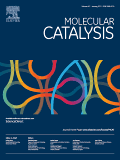
Molecular Catalysis
Scope & Guideline
Unlocking the Potential of Catalysis for Tomorrow
Introduction
Aims and Scopes
- Heterogeneous Catalysis:
Research on solid catalysts, including metal-organic frameworks (MOFs), zeolites, and transition metal oxides, focusing on their design, synthesis, and application in various catalytic reactions. - Homogeneous Catalysis:
Studies involving soluble catalysts, particularly those based on transition metals, which facilitate organic transformations and contribute to advancements in green chemistry. - Biocatalysis:
Exploration of enzyme-catalyzed reactions and the engineering of biocatalysts to improve their efficiency and selectivity for industrial applications. - Photocatalysis:
Research on light-driven catalytic processes, particularly those involving semiconductors for applications in environmental remediation and energy conversion. - Electrocatalysis:
Investigation of catalytic processes that occur at the interface of electrodes, focusing on renewable energy applications such as fuel cells and CO2 reduction. - Theoretical Studies and Mechanistic Insights:
Utilization of computational methods to understand catalytic mechanisms and optimize catalyst design, often complementing experimental findings.
Trending and Emerging
- Sustainable Catalytic Processes:
There is a growing focus on catalysts that facilitate green chemistry, emphasizing the reduction of waste and energy consumption in chemical processes. - Biomass Valorization:
Research has increasingly targeted the conversion of biomass into value-added chemicals, highlighting the importance of sustainable feedstocks in chemical synthesis. - CO2 Utilization:
Emerging interest in catalytic processes that convert CO2 into useful products, particularly in the context of climate change mitigation, showcases the journal's commitment to addressing global challenges. - Artificial Intelligence and Machine Learning in Catalysis:
The integration of AI and machine learning techniques to optimize catalytic processes and predict catalyst performance is becoming a significant trend. - Nanostructured and Hybrid Catalysts:
Innovative research is focusing on the design and application of nanostructured materials and hybrid systems that enhance catalytic efficiency and selectivity. - Electrocatalytic Water Splitting:
Research on electrocatalysts for water splitting is gaining momentum, driven by the need for efficient hydrogen production as a clean energy source.
Declining or Waning
- Traditional Homogeneous Catalysis:
There has been a noticeable decrease in studies focusing solely on classical homogeneous catalytic methods without integration of new approaches or technologies. - Conventional Metal Catalysts:
Research on conventional noble metal catalysts has waned as interest shifts towards more sustainable, low-cost, and earth-abundant alternatives. - Single-Use Catalysts:
The trend is moving away from single-use catalysts towards more sustainable, recyclable systems that promote circular economy principles. - Non-Selective Catalysis:
Research focusing on non-selective catalytic processes appears to be declining, as there is a growing emphasis on selectivity and efficiency in catalysis. - Overly Simplistic Mechanistic Studies:
Studies that do not incorporate advanced techniques or computational modeling for mechanistic insights have decreased, as the field increasingly values comprehensive understanding.
Similar Journals
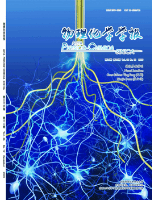
ACTA PHYSICO-CHIMICA SINICA
Advancing the frontiers of Physical and Theoretical Chemistry.ACTA PHYSICO-CHIMICA SINICA, published by PEKING UNIV PRESS, is a prestigious journal focused on the fields of Physical and Theoretical Chemistry, boasting an impressive impact factor as reflected in its 2023 Q1 ranking in this domain, placing it among the top 5% of journals in the subject area. With its origins dating back to 1996, the journal serves as a vital platform for the dissemination of cutting-edge research, encompassing a broad range of topics from molecular dynamics to thermodynamics and quantum chemistry. Researchers, professionals, and students are provided with valuable insights through peer-reviewed articles, making it an indispensable resource for advancing knowledge and sparking innovation in the discipline. While this journal does not offer Open Access options, its rigorous editorial standards and influential contributions continue to shape the landscape of Physical and Theoretical Chemistry globally. For submissions or further information, please refer to the editorial office at Peking University, Chemistry Building, Beijing, China.
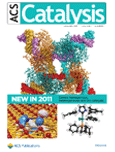
ACS Catalysis
Exploring New Frontiers in Catalytic ScienceACS Catalysis, published by the American Chemical Society, stands as a premier journal in the field of catalysis, offering a vital platform for researchers, professionals, and students focused on advancing the science of catalysis and its applications. With an impressive impact factor placing it in the Q1 category for both Catalysis and Chemistry (miscellaneous), this journal has established itself as a leading source of high-quality research findings, currently ranking #21 out of 408 in General Chemistry and #9 out of 68 in Catalysis according to Scopus. Since its inception in 2011, ACS Catalysis has aimed to publish innovative research that addresses the critical challenges in catalytic processes, advancing our understanding of both fundamental and applied aspects of catalysis. With a commitment to promoting open scientific discourse, it serves a vital role for those interested in the latest methodologies, discoveries, and trends in this essential discipline. Based in Washington, DC, ACS Catalysis continues to uphold the highest standards of scholarship and collaboration within the vibrant community of chemists and engineers worldwide.

Chem Catalysis
Pioneering insights in organic and physical chemistry.Chem Catalysis is a leading academic journal published by CELL PRESS, specializing in the diverse and dynamic field of chemistry. Since its inception in 2021, this open-access journal has rapidly ascended to prominence, holding Q1 quartile rankings in prestigious categories including Chemistry (Miscellaneous), Organic Chemistry, and Physical and Theoretical Chemistry. With its Scopus rankings placing it in the top tiers—Rank #14 in Organic Chemistry and Rank #12 in Miscellaneous Chemistry—Chem Catalysis serves as a vital platform for disseminating innovative research and catalysis science. Researchers and professionals seeking to stay abreast of cutting-edge developments will find this journal indispensable for advancing their knowledge and contributions to the field. Located in Cambridge, Massachusetts, Chem Catalysis is committed to fostering collaboration and innovation in the chemical sciences, paving the way for breakthroughs that address global challenges.

CCS Chemistry
Transforming Ideas into Impactful Chemistry ResearchCCS Chemistry, published by the esteemed Chinese Chemical Society, is a leading open-access journal dedicated to advancing the field of chemistry. Since its inception in 2019, the journal has rapidly gained recognition, achieving a remarkable impact factor that places it in the prestigious Q1 category in Chemistry (Miscellaneous) as of 2023. With a Scopus ranking of #41 out of 408 in General Chemistry, CCS Chemistry represents the top 10th percentile in its category, reflecting its commitment to high-quality research and innovation. The journal serves as a vital platform for researchers and professionals to share their findings, showcase cutting-edge methodologies, and engage with the latest developments in various chemistry subfields. Accessible to a global audience, CCS Chemistry ensures that groundbreaking research is available without barriers, making it an indispensable resource for students and academics aiming to stay at the forefront of chemical sciences. For further details, submissions, and access to published articles, please visit the journal's website.
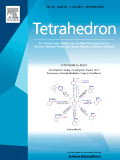
TETRAHEDRON
Innovating drug discovery through groundbreaking research.TETRAHEDRON, published by Pergamon-Elsevier Science Ltd, is a leading peer-reviewed journal that has been pivotal in advancing the fields of Biochemistry, Drug Discovery, and Organic Chemistry since its inception in 1957. With an ISSN of 0040-4020 and an E-ISSN of 1464-5416, this journal provides a platform for the dissemination of cutting-edge research and innovative methodologies that contribute significantly to the scientific community. Recognized for its rigorous editorial standards, TETRAHEDRON has been categorized in the Q3 quartile for 2023 across its relevant fields, reflecting its solid impact within the scientific sphere. Despite the current absence of Open Access options, the journal continues to engage a diverse readership, offering invaluable insights and advancements that fuel both academic and industrial applications. With an ongoing commitment to excellence, TETRAHEDRON remains an essential resource for researchers, professionals, and students aiming to stay at the forefront of chemistry and biochemistry research.
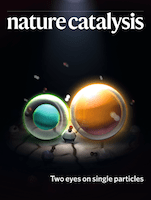
Nature Catalysis
Elevating Catalysis Research to New HeightsNature Catalysis is a premier academic journal published by NATURE PORTFOLIO, specializing in the rapidly evolving fields of biochemistry, bioengineering, and catalysis. With its ISSN of 2520-1158, this journal has emerged as an invaluable resource since its inception in 2018, contributing significantly to interdisciplinary research. Recognized for its high impact within the scientific community, it holds a prestigious Q1 ranking across multiple categories, including Biochemistry, Process Chemistry and Technology, and Catalysis as of 2023, illustrating its influence and authority in the field. Researchers will find impactful articles characterized by rigorous peer review processes that push the boundaries of knowledge in catalysis and its applications. While the journal operates with traditional access models, it remains accessible to a global audience interested in innovative research findings that promise to shape future developments in these critical areas. Positioned at the forefront of contemporary scientific inquiry, Nature Catalysis invites contributions that expand upon catalytic processes and technologies, which are crucial for advancing both fundamental science and applied engineering.
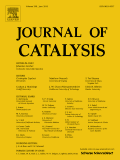
JOURNAL OF CATALYSIS
Unleashing Innovations in Catalytic ScienceJOURNAL OF CATALYSIS, published by Academic Press Inc, Elsevier Science, is a premier peer-reviewed journal that has been at the forefront of research in catalysis since its inception in 1962. With an impressive impact factor and ranking in the top quartiles of both catalysis and physical and theoretical chemistry, the journal is highly regarded, currently holding the distinction of Q1 in both fields. The journal serves as a critical platform for disseminating groundbreaking research, innovative methodologies, and theoretical advancements, making it essential reading for researchers, professionals, and students alike. Although it does not operate under an open-access model, its robust content is accessible through institutional subscriptions, ensuring that significant findings in catalysis and related fields reach a wide audience. With convergence years extending to 2024, JOURNAL OF CATALYSIS continues to shape the discourse in catalysis and chemical engineering, encouraging scholarly exchange and collaboration worldwide.

TOPICS IN CATALYSIS
Advancing Catalytic Innovation for a Sustainable FutureTOPICS IN CATALYSIS is a renowned journal published by SPRINGER/PLENUM PUBLISHERS, dedicated to advancing the field of catalysis and its applications in chemistry and chemical engineering. With its ISSN 1022-5528 and E-ISSN 1572-9028, this journal has been a critical resource since its inception in 1994, encompassing a wide range of research topics and recent advancements within the realm of catalysis, including both fundamental studies and practical applications. As of 2023, it holds a prestigious Q3 ranking in Catalysis and a Q2 ranking in miscellaneous chemistry, reflecting its impact and relevance in the academic community. With a Scopus rank of #128 in General Chemistry and #38 in Catalysis, TOPICS IN CATALYSIS is positioned to be a key contributor to the ongoing dialogue in these fields, fostering innovation and collaboration. While not an open-access journal, it provides institutional access options, ensuring that the latest findings and methodologies are available to researchers, professionals, and students worldwide. This journal is essential for those looking to stay at the forefront of catalysis research and its transformative potential in science and industry.
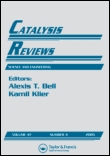
CATALYSIS REVIEWS-SCIENCE AND ENGINEERING
Unleashing Innovation in Catalysis and EngineeringCATALYSIS REVIEWS - SCIENCE AND ENGINEERING, published by Taylor & Francis Inc, is a leading journal in the field of catalysis, providing a vital platform for the dissemination of rigorous research and comprehensive reviews from 1968 to the present. With an impressive Q1 ranking in multiple categories, including Catalysis and Chemistry, this journal stands out as an essential resource for professionals, researchers, and students alike. Its high impact factor and esteemed Scopus ranks — including 3rd in Chemical Engineering: Process Chemistry and Technology — highlight the journal's influence and prestige within the scientific community. While primarily a subscription-based publication, the journal’s commitment to advancing the understanding of catalytic processes continues to foster innovation in various industrial applications, making it indispensable for anyone engaged in the fields of chemical engineering and applied chemistry.
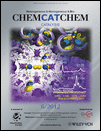
ChemCatChem
Catalyzing Knowledge in the Heart of Chemical Science.ChemCatChem is a leading international journal published by WILEY-V C H VERLAG GMBH that has been making significant contributions to the fields of catalysis, inorganic and organic chemistry, as well as physical and theoretical chemistry since its inception in 2009. With an established reputation for excellence, this journal holds commendable rankings in various categories, including Q1 in Inorganic Chemistry and Q1 in Organic Chemistry, demonstrating its pivotal role in advancing scientific knowledge and innovation. Notably, it has achieved a high Scopus ranking, securing 10th place out of 79 in Inorganic Chemistry, among others, showcasing its influence and quality. Although open access options are not available, the journal offers cutting-edge research articles, reviews, and insights that are vital for researchers, professionals, and students aiming to stay at the forefront of chemical science. With its address rooted in Weinheim, Germany, and convergence projected to continue until 2024, ChemCatChem remains a dynamic platform for disseminating vital advancements within the chemical community.